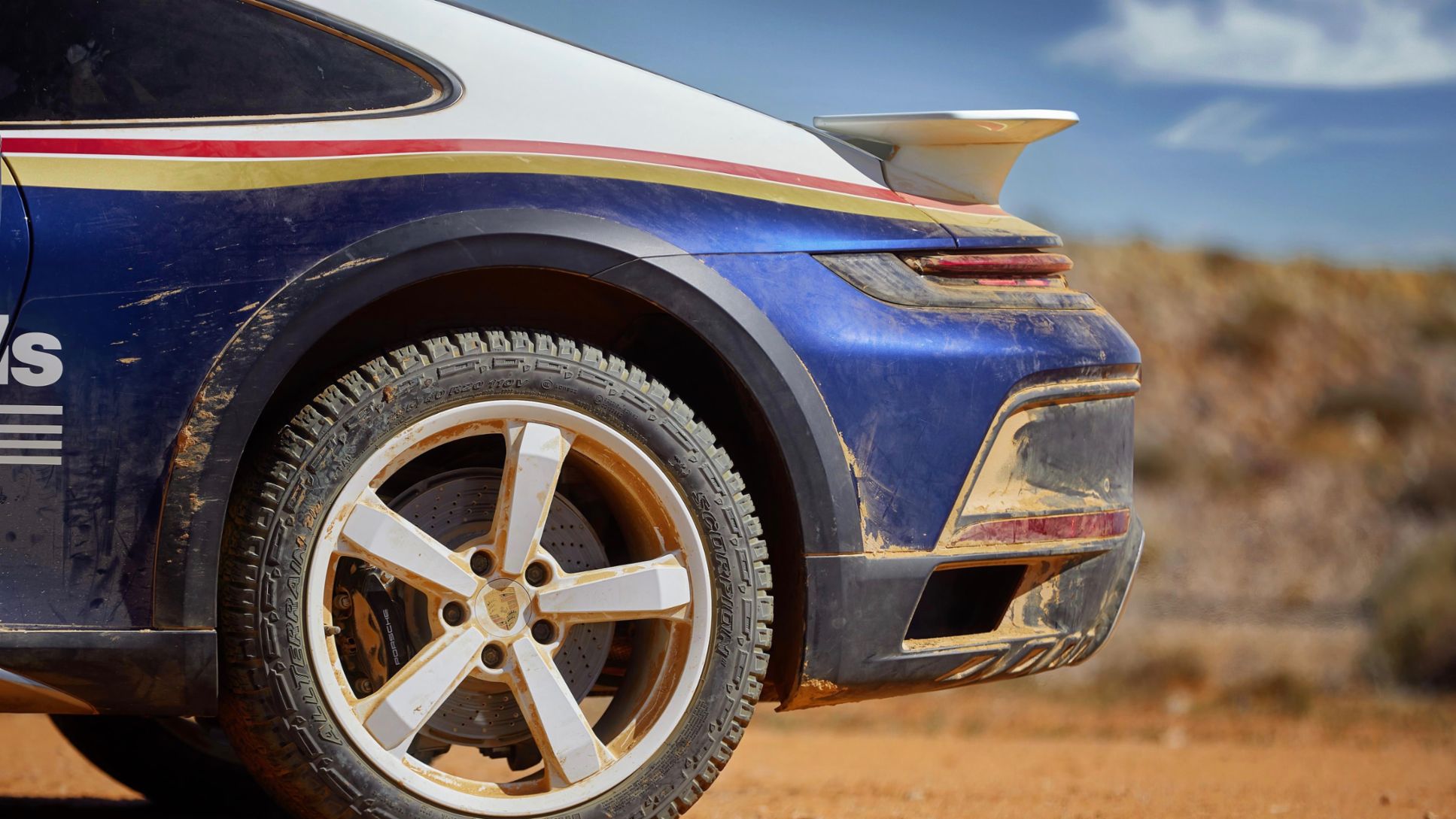The new Porsche 911 Dakar has an exceptionally dynamic and impressive powertrain: a 3.0-litre () six-cylinder boxer engine with twin turbochargers and 353 kW (480 PS). The engine delivers its maximum torque of 570 Newton metres at just 2,300 rpm and holds this figure through to 5,000 rpm. The engineers have created a compelling, rich sound experience for the 911 Dakar, which has been achieved using the standard sports exhaust system.
The six-cylinder boxer comes standard with an eight-speed PDK to distribute the power to all four wheels. It propels the new off-road sports car from 0 to 100 km/h in 3.4 seconds and reaches a top speed of 240 km/h (limited by the all-terrain tyres).
The air intakes and cooling have been modified for off-road use. Due to the higher exposure to dust, particularly while drifting, the enhanced air filter from the 911 Turbo has been fitted. The air filter box is equipped with a support grille and mounted with the more powerful fan motor from the 911 Turbo. They are equipped with 650-watt fans, which ensure adequate cooling even during slower drives over off-road terrain in hot temperatures. The more powerful alternator from the 911 Turbo is also installed on the engine.
The engine mounts, which help increase the stiffness of the engine’s connection with the chassis by 100 per cent, come from the 911 GT3. This optimises handling during dynamic manoeuvres as well as reducing bottoming-out and the development of engine vibrations on uneven terrain.



